|
Genres, Themes, Actors, and Directors:
- Fredric March Films
- Horror
- Mad Doctors and Scientists
- Miriam Hopkins Films
- Multiple Personalities
- Rouben Mamoulian Films
Response to Peary’s Review:
Peary writes that this “rare venture into horror films by Paramount in the wake of success by Universal” resulted in “one of the classiest entries in the genre, a true ‘A’ production” featuring a “forceful performance” by March. He notes that March’s Mr. Hyde is “one of the cinema’s most terrifying monsters, a sadistic female-batterer of the first order” who “resembles a demented monkey”, and points out that this pre-Code film “has strong sexual context and is too gruesome for young kids or the squeamish” — indeed, even seasoned film fanatics will likely recoil at how loathsome Hyde is, particularly given the lack of sufficient explanation for how such a monster could co-exist within saintly Dr. Jekyll. The film strongly promotes the notion that those perceived as most noble may harbor the most insidious pathologies — but what a terribly depressing “message” that is for humanity! It’s perhaps easier to focus on the film’s daring condemnation of sexual repression: with Hobart’s stodgy father (Halliwell Hobbes) insisting that March and Hobart postpone their marriage for eight months, Jekyll apparently feels justified in releasing his sexual tension through a manufactured alter ego. What’s unclear (and deeply unsettling) is why the Neanderthal-ish Mr. Hyde perpetrates such evil while satisfying his lust — and how gleeful he is whenever he emerges.
Hopkins gives the performance of her (early) career in this film, playing a visibly traumatized and terrorized young prostitute who understands that her life as she knew it is over. (Check out the very bottom photo and caption in And You Call Yourself a Scientist‘s extensive review; I agree with her sentiment — and her review is well worth a read.) Also noteworthy is Mamoulian’s “innovative, influential direction”, including experimentation “with split frames, superimposed shots (during impressive man-to-monster transformations), and point-of-view shots.” James Wong Howe’s stunning cinematography and Norbert A. Myles and Wally Westmore’s groundbreaking make-up and special effects merit mention as well; as noted in Moria’s review, “The transformation sequences were conducted by the unique effect of painting Frederic March’s face with certain types of greasepaint, the effects of which became more pronounced on the black-and-white film stock as different coloured lights were projected on his face.”
Redeeming Qualities and Moments:
- Fredric March as Dr. Jekyll/Mr. Hyde (nominated by Peary as one of the Best Actors of the Year in his Alternate Oscars)
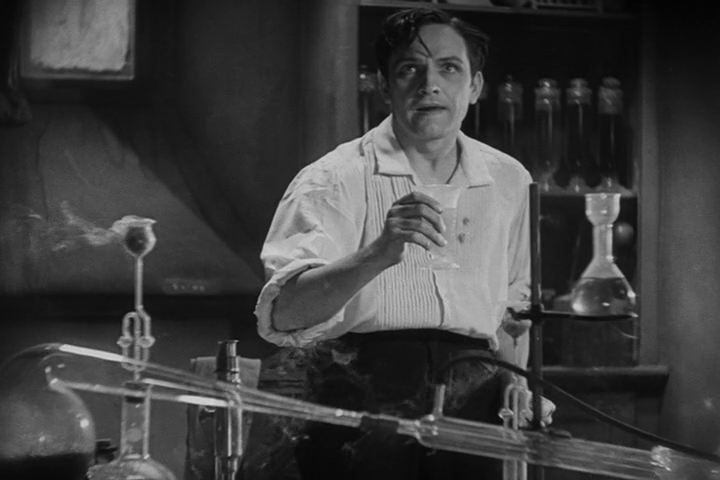
- Miriam Hopkins as Ivy
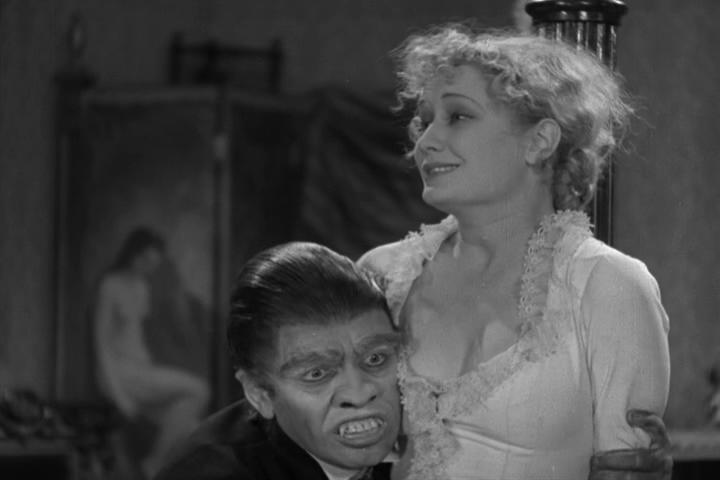
- Impressive make-up and special effects
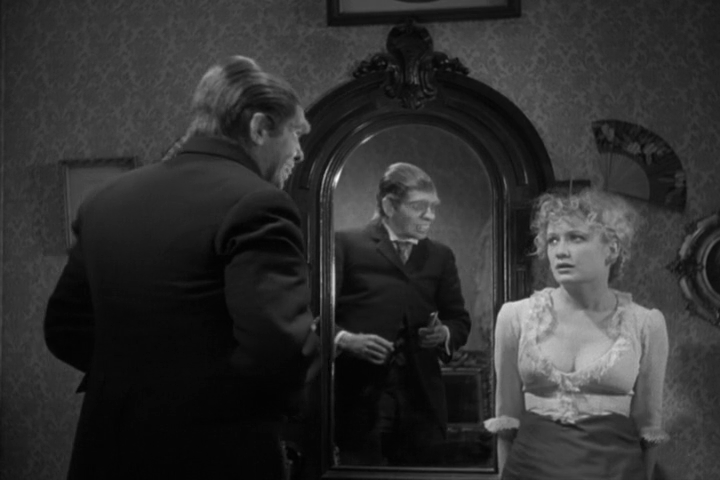
- Atmospheric, innovative cinematography
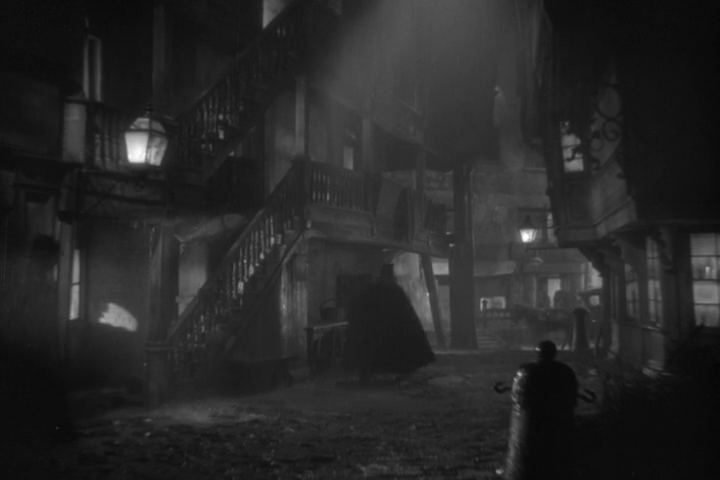
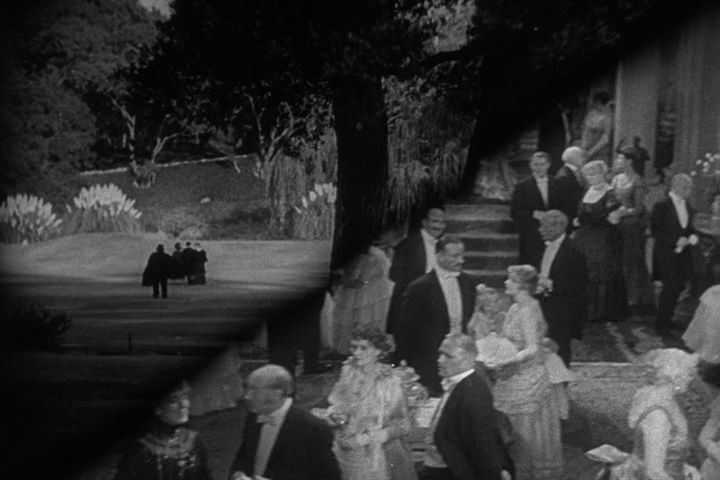
Must See?
Yes, as a disturbing classic — though you may not want to stomach it more than once.
Categories
- Genuine Classic
- Oscar Winner or Nominee
Links:
|
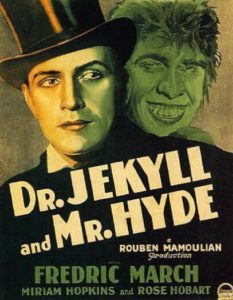





2 thoughts on “Dr. Jekyll and Mr. Hyde (1931)”
First viewing – a once-must, at least. for its place in cinema history and for March’s performance.
I thought I had seen this one already, but apparently not.
Wikipedia reminds us that the original novella did not have the two leading female roles for the protagonist to contend with – but, since they’re there in the film, we must assume that the good/bad duality that Jekyll lectures about has (largely) to do with sex and the proper treatment of women.
But why is the angelic Jekyll drinking a potion anyway? It’s not like he has any real bad side to keep at bay. We assume that his intention (in drinking) is to “separate” his bad side completely by subduing it with a solution. That seems to be the only explanation when Jekyll miscalculates, his body rebels and – instead of being killed off – the bad side is fed and nourished by the very solution that was supposed to be bad for it. The story’s actual point appears to be the recognition of man’s basic duality of spirit… and our fierce need to control our ‘darker’ nature (which we all have) at all times.
March’s performance is, indeed, impressive – but the real surprise here is Hopkins. I’m not personally a fan of the bulk of her work (since I usually find her to be too – well… hammy) but Mamoulian seems to reveal that Hopkins can deliver when she’s encouraged to not be quite so… all over the place. Here, she is at her most effective when she’s up close and personal with Hyde – and so terrified that she can hardly speak.
For me the finest adaptation of the Stevenson tale I’ve seen and a true cinema classic. As such, a no-brainer must see.